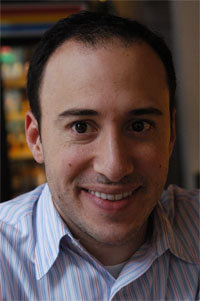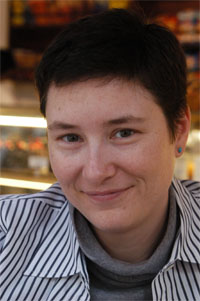Olson firm has history of supporting gay marriage

Enrique Monagas
It turns out that it shouldn’t have been a big surprise last year when conservative icon Ted Olson announced he would help lead the charge against Proposition 8, the initiative which bans legal recognition for same-sex relationships in California.
Olson’s law firm—Gibson, Dunn & Crutcher—is no novice at defending the rights of gays to get married. In fact, the firm, of which Olson is a partner, has defended the rights of same-sex couples to marry in three other high-profile gay marriage cases. On its website, this large, corporate firm’s managing partner, Kenneth Doran, emphasizes that the company “truly embraces diversity,” and the website includes a video of two of the firm’s openly gay partners—Jeff Webb and David Rosenauer—talking about the high level of comfort they have felt with being openly gay at the firm.
Webb and Rosenauer note, during the video, that the firm has both conservative and liberal attorneys, and a number of openly gay attorneys.
Two of those openly gay attorneys who are working on the Perry v. Schwarzenegger case are Enrique Monagas and Sarah Piepmeier of San Francisco.

Sarah Piepmeier
Piepmeier, who joined Gibson, Dunn in 2003, helped the firm prepare a friend-of-the-court (or “amicus”) brief on behalf of a group of businesses who supported the city of San Francisco’s first lawsuit, In Re Marriages, to defend the right of same-sex couples to marry. It was the California Supreme Court’s decision in that case, in 2008, which first recognized that the state constitution’s guarantee of equal protection meant same-sex couples should be treated the same as straight couples in marriage licensing. (And it was that decision which prompted opponents of equal rights for gays to launch their Proposition 8 initiative drive.)
Both Piepmeier and Monagas were involved in Gibson, Dunn’s work on a second same-sex marriage case, Strauss v. Horton, which challenged the constitutionality of Proposition 8 as more than just an amendment to the state constitution—as a revision of the constitution. Piepmeier and Monagas helped write an amicus brief for more than 60 state legislators who opposed Proposition 8.
And Gibson, Dunn also submitted an amicus brief for pro-gay marriage scholars in one of the first gay marriage cases, Baehr v. Hawaii, in 1997, when it was appealed to the state supreme court.
Both Monagas and Piepmeier are in their mid-thirties, both are married to same-sex spouses, and—by coincidence—both share the same anniversary date of October 22, 2008.
Monagas said he and his spouse chose October 22 because it is their daughter’s birthday. For Piepmeier, it’s a little more complicated. She was working on a case out of town for the entire time during which gay couples could legally obtain a marriage license in California. When she expressed her dilemma to one of the firm’s partners in Washington, D.C., where she working on a case at that time, the partner insisted Piepmeier fly home and get married before it was too late. And she did.
Monagas was born in Puerto Rico to an Air Force family who then lived in Arizona and Spain. He attended the University of California-Berkeley and its law school, serving as editor of the Berkeley Journal of Gender, Law & Justice. He spent four years in New York City, but most of his life has been spent in Riverside, California.
Piepmeier was born in London, spent her early years in Washington, D.C., attended Wellesley College and New York University Law School, and lived in Boston and Chicago before moving to San Francisco in 2003.
Piepmeier and Monagas say they are not the only gay people working on the Perry v. Schwarzenegger case at Gibson, Dunn. There are other attorneys and staff.
“There have definitely been times when being gay has had an added value,” said Monagas. “We have a knowledge of all the gay history, of gay litigation, the prior gay marriage cases—Sarah and I know them all. It’s our community.”
One of the things Monagas knew about the community was that it had a strategy of trying to secure equal marriage rights on a state-by-state basis. For that reason, he said, he was initially skeptical about the idea of the federal lawsuit to challenge Proposition 8. But the firm convinced him of the case’s merits.
“And when I found out that Ted Olson was going to put on the case with David Boies,” said Monagas, “I was sold.”
As Piepmeier puts it: “There’s really a warmth and sincerity and personal interest about Ted Olson [in the case] that sets the tone.”


[…] the rest of Lisa Keen’s article here. The AFER Case to Overturn Prop. 8 Support the Case: Donate to […]
[…] read more […]